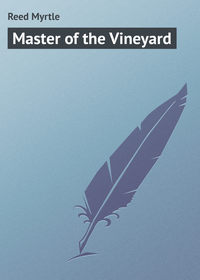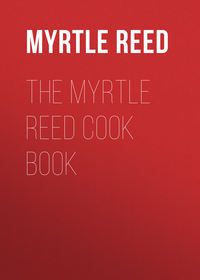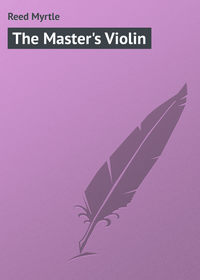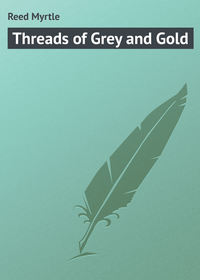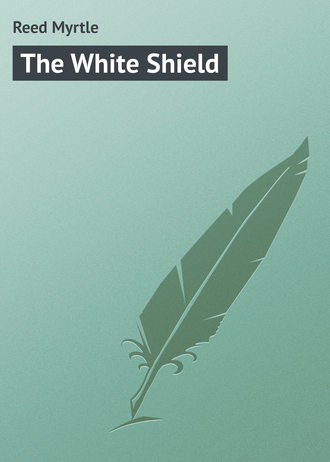 полная версия
полная версияThe White Shield
Without thought or knowledge of the art he still blundered on, knowing naught save that it was his fingers that made a wild, delirious, rapturous sound, and seeing only the remembered vision of the master's face.
Conscious of nothing else, he did not see that the sun had risen. Suddenly he looked up. His father stood before him with a strange expression on his face. The terrified child dropped the instrument to ward off a blow, but the father said, with a tremor in his voice: "Is it so, my boy? Are you then a musician? You shall have lessons; I shall give you a violin; we go to-day to see the master. Ah, the music! It is most wonderful!"
The boy was dumb with astonishment. To learn? And who was the master? That afternoon he dressed himself in his best garments, which were worn only on festal occasions, and with his father went on the gladdest errand of his life.
The master! Could it be? The child's heart almost stopped beating. Yes, down the little street they turned and went up to the door of the cottage. He could not speak.
Presently he found himself in a plainly furnished little room, and heard footsteps in the hall. The door opened, and Pedro looked up to see those deep-set eyes that seemed to smile down at him.
The father rose, and bowing low, he said: "Signor, I would like my son to play the violin – you are a teacher – he will be a musician. I have no money, Signor, but if you teach my boy how to play, I will make you a violin – the finest in the world."
The master was about to refuse; his old violin was a good one, and he did not like to teach. He turned away hastily, but he caught a glimpse of the child's uplifted face. His soul was in his eyes, and in their depths the great artist saw an unutterable longing. He was touched. "Child," he said, "would you like to play?"
He laid his hand on the boy's shoulder. The touch and the kindly tone thrilled him unspeakably. To play? To hear again that infinite music? Glad tears rushed to his eyes and his only answer was a sob.
"Ah, yes," the man's voice was tender. "You love it; I will teach you. Come to-morrow at this hour and we shall begin."
Pedro went home, wild with delight. To play! To see the master's face! Ah, it was too much! All night long he dreamed of that delicious melody, and the dear old head with its crown of silver hair that seemed like a benediction.
His father gave him a little old violin. To him? Was it all his own? "And when you can play, my boy," he said, "you shall have the 'Beauty'."
Pedro's first lessons were a revelation. His face was a study for a painter, and the teacher saw that he had before him the promise of an artist. He gave himself willingly to the task and soon learned to dearly love his eager pupil.
And Pedro? No task was too hard, no study too difficult, no practice too long and tedious, if he might please his good old friend; and even while he struggled with the difficulties of technique, he never lost hope or patience, for before him always like a guiding star, was the serene white face of the master.
So the years went by, and all Italy was being searched for the finest wood that grew – for the sharpest tools. The wood for the master's violin must be well seasoned – it would take a long time – the longer, the better. For centuries the old tree had listened to wind, and river, and bird; the sounds of the forest were interwoven with its fibre, and now it must give up its buried music in answer to the strings of the violin.
The childish stature was changed to that of manhood, and still the teacher found in Pedro a devoted pupil. The youth had developed in many ways, but the artist seemed to be little changed. A little more bent, perhaps, but the same sweet soul.
Pedro had the "Beauty" but the master's violin was not yet finished. He never asked for it, never spoke of it; in the delight of Pedro's achievement and greater promise, perhaps he had forgotten the promise of the old violin maker.
But the old man was growing feeble. A change was coming and the young man felt it too. He went one day for his lesson, and the housekeeper met him at the door with her finger on her lip. Hush! The teacher was ill. But he would like to see Pedro for a few minutes.
He went in and spoke tenderly to the old friend, whose eyes shone with so much love for his pupil – his boy – as he still called him. Pedro could not stay long – it was too sad, and the tears were choking his utterance. He went home with a sorrow-laden heart.
His father said to him as he entered: "The master's violin is at last finished, my son. See?"
He held up a beautifully fashioned instrument.
"You shall take it to him to-morrow. Ah, its tone! You will play?"
"No, father, I cannot. The master, he is ill – dying – perhaps. Oh! I cannot."
The old violin maker laid the instrument gently in its case. There were tears in his own eyes – "The teacher! Well, we must all die," and he turned to his work.
Night came, and Pedro tossed restlessly on his couch. About midnight there was a rap on the front door of the shop.
He went quietly and opened it. There was a messenger from the old housekeeper. The teacher was sinking fast. The physician said he could not last until morning. He was out of pain, and he knew the end was near. Would Pedro come and play for him? The night seemed so long! Pedro dressed himself hurriedly. Oh, if he should be too late! As he went through the shop he passed the table where lay the master's violin. A sob came into his throat as he lifted it from the case. He would play that.
Out into the still street he went with almost breathless haste. The moon shone gloriously, and the air was sweet with spring. He reached the cottage and went softly into the little room at the end of the hall where the man lay, looking like a piece of marble statuary, but still breathing. Pedro bent over him and looked lovingly into his face.
The master spoke with difficulty – "You are come, then, my friend – my boy?" The same old tenderness! Pedro could not answer. "You will play to me? The end is so near, the night seems so long – play to me, my boy."
The feeble man turned his face to the open window, which was on a level with his couch. With a sigh of content, he laid his head upon the sill. Pedro started. The position, the moonlight, oh, that far-off night! Again he was a child crouching in the darkness, and in the old ecstasy beneath that very window – he heard again that infinitely sad music, and saw again the white suffering face.
He placed the instrument in position; step by step, unerringly, he followed the notes of the marvellous melody, for was not the musician before him, teaching him how to play it?
The grey head turned towards the player – a strange new light in his eyes. But seeing only the vision of his childhood the young man played on and on, and somehow into the symphony crept all the love and sadness of a life time. As he played he threw his whole soul into the music. Oh, the indescribable sweetness of the master's violin! At last his vision faded, and he saw the massive head drop on the same old sill – he heard once more the sobs that come with tears.
The music ended with a broken chord, and he looked up – to find his friend gazing at him with ineffable happiness. "My boy, where did you learn that? It is one of my own compositions – I have never written it all down – where – where did you learn it?"
Pedro drew his chair to the couch, and, clasping the withered hand in both his own that were strong and young, and beating with life, he told the story. So long ago that he was but a child, he had heard the artist play it. He had known even then that it was born of sorrow, and to-night that far-off time came back into the moonlight, with the master's face. He had not played from memory only, for the teacher had shown him some of the notes and he had but followed.
The man feebly raised his head and said brokenly: "My boy, you are right; I had a sorrow. You are young, but you will understand."
No longer master and pupil, they were now friend and friend.
"I loved her – the best of all the world. But with the end only, came the peace which had been denied me in life. She loved my music and I played to her when she lay dying. She did not love me as I loved her – I was her friend, always; 'her dear, dear friend,' she used to say.
"But," and the voice grew stronger, "my arms were around her when the angels came – with my kisses on her lips she went to her grave – there are violets there – she loved them so – for thirty years I have watched them. Her heart has blossomed into them, and they come from her to me.
"She was so pure – so sweet – and her last word was for me. Such a little word! With her last strength, she put her arms around me, and drew my face down to hers – such a little word – it was a whisper —Sweetheart! She loved me then – I know she did. Oh, love, could I break the bonds of the grave!" He was silent for a moment. "Now you know – you understand. You will play it again."
The night was deepening toward the dawn. Once more Pedro took the violin – and played the melody, instinct with the old, old story of love and pain. The man's eyes were closed; he lay contentedly and peacefully as a child. As the boy played, the darkness waned, and as he finished, not with a broken chord, but with a minor that some way seemed completion, the first faint lines of light came into the eastern sky.
The master turned to the window again: "See, the day breaks." The sky grew gold and crimson, but a more celestial light seemed to live around the grey head, as if, in rifts of heaven, he saw her waiting for him.
He stretched his trembling hands to the east, and whispered: "Yes, I am coming! Coming! You love me then? Ah, yes! Beyond the sunset – the dawn; I am coming – coming – coming – such a little word —Sweetheart!"
A look of unspeakable rapture; it was transfiguration; then the deep blue eyes were closed upon the scenes of earth. The first ray of the sun shot into the little room and rested with loving touch upon the couch. The sobbing old housekeeper came toward them, but Pedro motioned her away.
He knelt at the bedside, his own face shining with something of that celestial glow, and man though he was, with quivering lips he kissed again and again the dear white face of the master.
A Reasonable Courtship
When Tom Elliott graduated from Harvard, that power of the mind which is known as reason had become a fetish with him. Every human action, he argued, should be controlled by it. The majority of people were largely influenced by their feelings; he, Thomas Elliott, twenty-six, good-looking, and fairly wealthy, would turn his mental advantages to good account and be guided wholly by his reason.
He explained his theory to an attractive young woman who had gone out on the veranda with him. Partly because her mind was too much occupied with the speaker to comprehend the full purport of his remarks, and partly because her feminine tact forbade opposition to an unimportant thing, Miss Marshall nodded her pretty head in entire assent.
"It is an assured fact," he went on, "that all the unhappiness in the world is caused by the inability to reason. Married life is miserable just because it is not put on a sensible basis. Any two human beings capable of reasoning would be happy together, if that point were kept constantly in view. Perfect, absolute truthfulness, and constant deductions from it, form the only sure foundation for happiness. Am I right?"
She twisted the corners of her handkerchief. "Yes, I think you are."
Elliott paced back and forth with his hands in his pockets – a symptom of nervousness which women mistake for deep thought; "Belle," he said suddenly, "I have always liked you. You have so much more sense than most girls. I am not going to flatter you, but you are the only woman I ever saw who seemed to be a reasonable being. What I want to ask is, will you try it with me?"
Miss Marshall opened her brown eyes in amazement. Since she left boarding-school, the approach of the Elliott planet had materially confused her orbit. She had often dreamed of the offer of Tom's heart and hand, but for once, the consensus of masculine opinion to the contrary, a woman was surprised by a proposal.
"What on earth do you mean?" she gasped.
"Just this. You and I are congenial, of an equal station in life, and I believe we could be happy together – happier than the average married couple. There's no foolish sentimentality about it; we know each other, and that is enough."
There was a terrific thumping going on in the region where Miss Marshall had mentally located her heart. She took refuge in that platitude of her sex which goads an ordinary lover to desperation.
"This is so sudden, Mr. Elliott! I must take time to consider."
"Very well, take your own time. I'll be a good husband to you, Belle, if you'll only give me the chance."
In the solitude of her "den" Belle Marshall gave the matter serious consideration. Safely intrenched behind a formal proposal, she admitted to herself that she loved him – a confession that no woman ever should make until the Rubicon has been crossed. But even the most love-blinded damsel could not transfigure Elliott's demeanour into that of a lover.
Within her reach, in a secret drawer, was a pile of impassioned letters and a withered rose; on her desk a photograph of a handsome face, which she had last seen white to the lips with pain. He had called her cruel, and she had smiled faintly at the Harvard pin which she wore, and bade him go.
Then there was another, of whom Belle did not like to think, though she went to his grave sometimes with a remorseful desire to make some sort of an atonement. He was only a boy – and some women know what it is to be loved by a boy.
She compared the pleading of the others with Elliott's business-like offer, and wondered at the severity of fate. Then she wrote a note: "Miss Marshall accepts with pleasure, Mr. Elliott's kind invitation to become his wife," and sent it by a messenger. Before burning her relics, as an engaged girl should, she sat down to look them over once more. With a Spartan-like resolve she at last put every letter and keepsake into the sacrificial flames. When it was over she sighed, for she had nothing left but memory and the business like promise of the morning: "I'll be a good husband to you, Belle, if you'll only give me a chance."
Her note would doubtless be answered in person, and she donned a pretty white gown, that she might not keep him waiting. She vainly tried to tone down her flushed cheeks with powder. "You are a nice sort of girl," she said to herself, "for a reasonable marriage."
Just then the door-bell rang, and she flew to answer the summons. There was no one else in the house, the coast was clear and she was an engaged girl. She started in surprise, as Elliott walked solemnly on by her, after she had closed the door.
"Nice afternoon," he said.
There was no doubt about it; Miss Marshall had expected to be kissed. Still unable to speak, she followed him into the parlour. He turned to offer her a chair and instantly read her thought. "You need fear nothing of the kind from me," he said in a blundering way, which men consider a high power of tact. "It's not hygienic, and is a known cause of disease. Above all things, let us be sensible."
"You got my note?" she enquired faintly.
"Yes, and I came to thank you for the honour conferred upon me. I assure you, I fully appreciate it – more, perhaps, than I can make you understand."
Throughout his call he was dignified and friendly, but she was in a state of nervous excitement which bordered on hysteria.
"You are nervous and overwrought," he said in a friendly way. "Perhaps I would better go. I'll come again soon, and you shall name the day, and we will make plans for our future."
He shook hands in parting, and Belle ran up-stairs as if her life depended upon it. Once in her own room, she locked the door, then threw herself down among her sofa pillows in a passion of tears.
"A – cause – of —disease– of —disease," she sobbed. "Oh, the – brute!"
She had kept her lips for her husband, and the wound went deep. When she descended the stairs, calm and collected, her eyes were set and resolute, and there was a look around her mouth that boded ill for Mr. Thomas Elliott, of Harvard, '94.
The next day he asked her to drive.
"I don't want to hurry you in the least," he said, "and the time is left to you. Only tell me a little time before, that is all. And Belle, remember this: I am going to be perfectly and absolutely truthful with you, and I expect you to be the same with me."
It was not long before she found out that he meant what he said.
"Do I look nice?" she asked him one evening, when they were starting for the theatre.
"I am sorry to say that you do not," answered Elliott. "You've got too much powder on your nose, and that hat is a perfect fright."
Her eyes flashed, but she said nothing. Offering him her handkerchief she commanded him to "wipe off the powder," and Elliott did so, wondering in a half-frightened way, what the mischief was the matter with Belle.
They were early, and sauntered along the brilliantly lighted street, with plenty of time to look into the shop windows. One firm had filled its largest window with ties of a dashing red.
"I think I'll get one of those," Tom said. "They're stylish just now, and I think it would be becoming, don't you?"
"No, I don't," she answered promptly. "Only a man with a good complexion can wear one of those things!"
Tom had always thought his dark clear skin was one of his best points, and that Belle should insinuate that it wasn't, hurt his pride. Neither spoke until they entered the theatre; then man-like he said the worst thing possible.
"That's a pretty girl over there," inclining his head toward a blond beauty. "I always liked blonds, didn't you?"
Belle was equal to the occasion. "Yes, I always liked blond men; I don't care so much for the girls."
Elliott's lower jaw dropped thoughtfully. He was as dark as Egypt, himself.
Neither enjoyed the play.
"Seeing it a second time has spoiled it for me," Tom said. "I took Miss Davis last week and we both enjoyed it very much."
Belle's stony silence at last penetrated Tom's understanding.
"There's no reason why I shouldn't take another girl to the theatre," he explained, "just because I happen to be engaged to you. It isn't announced yet, and won't be until you are willing. And you know it doesn't change my regard for you in the least to go with any one else. You are welcome to the same freedom."
A great light broke in upon Belle. The next time he called she had gone to play tennis with a Yale man. He saw them laughing and chatting a little way down the street, and the owner of the blue sweater was carrying her racket. Tom was angry, for the Yale man was an insufferable cad, and she had no business to go with him. He would speak to her about it.
On the way home, he wisely decided to say nothing about it. Perhaps Belle wasn't as fully accustomed to being guided by reason as he was, though she was an unusually sensible girl. He must be gentle with her at first; she would grow by degrees.
Acting on this impulse, he took his cherished copy of Spencer's Ethics and presented it to her.
"You'll like this," he said, "after you have got into it, and it will help you amazingly about reasoning."
A well-developed white arm threw the Spencer vigorously against the side of the house. Elliott was surprised, for a woman like this was utterly outside the pale of his experience. Perhaps she didn't feel well. He put his arm around her.
"What is it, Belle?" he asked anxiously.
The singular phenomena increased in intensity, for Belle jerked away from him, with her eyes blazing.
"How dare you touch me?" she said, and walked like an empress out of the room.
Inside of ten minutes the idea came to Elliott that she did not intend to return until he left the house. Her handkerchief lay on the table, and he picked it up. He looked carefully into the hall, and saw no one. Then the apostle of reason put the handkerchief into his pocket and walked out of the room to the front door, then slowly down the street, still in a brown study. "What could a young woman mean by such vigorous hints of displeasure?" Four years at college had taught him nothing of women and their peculiar ways, and he was evidently on the wrong track. It wasn't reasonable to humour her in such tantrums, but he sent a box of roses by way of a peace offering, and received in return a note which emboldened him to call.
An old-time friendly chat put them on an equal footing again, and Elliott grew confidential.
"Every thought of mine rightfully belongs to you, I suppose," he said one day.
"Every thought of mine is of you," she replied softly, and he watched the colour in her cheeks with a sensation akin to pleasure.
He thought about it in the night afterward. It was nice for a fellow to know that a girl like Belle thought of him often. If it had been a proper thing to do, he wouldn't have minded kissing her when she said it, for he had never seen her look so pretty.
The Yale man had gone back to college and Elliott settled down in business with his father. He and Belle were the best of friends, and he looked forward with increasing pleasure to the day which she had not yet named. He planned a European tour which he was sure would both surprise and please her. He did not intend to mention it until after the ceremony.
Surely no lover ever had a more reasonable and attractive path to travel. Belle was everything that could be desired. When his visits were infrequent, she did not seem to miss him, and – rarest quality in woman! – never asked him any questions as to the way in which he had spent the time away from her.
Tom felt like a pioneer who had emancipated his sex by applying the test of reason to every duty and pleasure in life.
The summer waned, and beside the open fire in the long cool evenings she seemed doubly attractive. In a friendly way, he took her hand in his, as they sat in front of the flaming brushwood, then started in surprise.
"What is it?" she asked.
"The queerest thing," Tom answered. "When I touched your hand just now, I felt a funny little quiver run up that arm to my elbow. Did you ever feel a thing like that?"
Belle forsook the path of absolute truth.
"No, how queer!"
"Isn't it?" He took her hand again, but the touch brought no answering thrill. "Must have been my imagination, or a chill," commented Tom.
Alone in her room, Miss Marshall laughed softly to herself.
"Imagination, or a chill! What a dear funny stupid thing a man is!"
Sunday evenings Tom invariably spent with Belle. When he called on the first evening of the following week, he was astonished to find that she had gone to church with the Yale man. Mrs. Marshall explained to him that it was the young man's farewell visit; his mother had been ill and he had been unexpectedly called home, thus giving him a few days with old friends.
"Must be very ill," said Tom ironically, under his breath, as he went back to his cheerless room.
There was a queer tightness somewhere in his chest which he had never felt before and it seemed to be connected in some way with the Yale man. He slept fitfully and dreamed of Belle in a little house, with an open fire in the parlour, where he would be a welcome guest and the alumni of the other colleges would be denied admittance. He was tempted to remonstrate with her, but had no reasonable ground for doing so. They would be married shortly and then the matter would end.
The next time he went to see her, the peculiar tightness appeared in his chest again, and he could hardly answer her cheerful greetings. He noted that she had acquired a Yale pin, which flaunted its ugly blue upon her breast. He trembled violently as he sat down and drops of perspiration stood out on his brow. She was alarmed and brought him a glass of water. As she stood over him, the womanly concern in her face touched him not a little, and he threw his arms around her and drew her down to him.
"Kiss me once, Belle," he pleaded hoarsely.
With a violent effort she freed herself.
"It's not hygienic," she explained, "and frequently causes disease."



